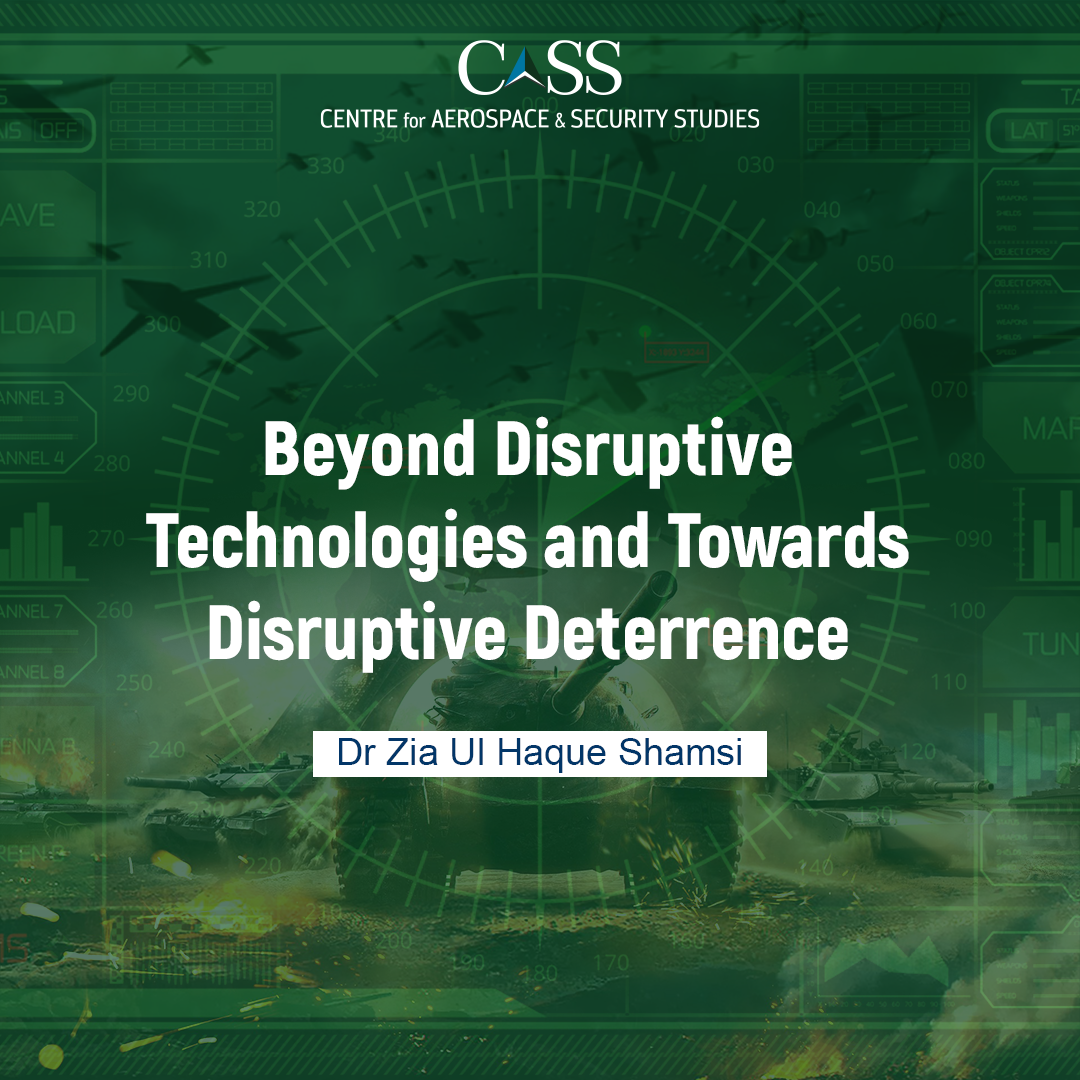On June 8, 2022, the Centre for Aerospace & Security Studies (CASS), organised a seminar titled ‘Disruptive Technologies – Impact on Future Warfare’ in the capital city, Islamabad. The event was unique in the sense because the topic was equally challenging for the speakers as well as the audience. It was a full house from the beginning till the end, and I did not see a single person leaving the hall during the proceedings of the seminar. Team CASS certainly deserves appreciation for successfully organising the seminar on a topic which aimed at highlighting the impact of disruptive technologies on future warfare. The moderator, Air Marshal Ashfaque Arain (Retd.), conducted the seminar in a very sober manner which ensured disciplined conduct and left enough time for the audience to ask questions from the distinguished panel of speakers. The second most important feature of the seminar was its timings. The Ukraine war has entered its fourth month with no end in sight. Some of the cutting-edge technologies are being extensively used in this war and showing disastrous results for mankind. In fact, this is what had been feared when these technologies were being weaponised by developed nations. Now that these are being used in Europe itself, the results are certainly causing unrest in certain quarters.
This article is, by no means, a seminar report, rather it is aimed at raising certain probing questions from its proceedings. A good amount of time during the Q&A session was consumed on the definitions of nature and character of war. The learned speakers had differing opinions, but there was a general agreement that conventional wars were here to stay despite nuclear deterrence, and modern weapon systems, and would remain destructive in their outcome.
Since I was unable to ask this question, I thought it appropriate to use this forum to raise the issue which needs a lot more deliberations in the days ahead. My question is if conventional wars are here to stay in the presence of such destructive (nuclear) and disruptive technologies, like Artificial Intelligence (AI), quantum computing, cyber warfare, hypersonic weapons, etc., then what is the future of mankind on this planet earth? Secondly, if space is going to be weaponised, then who would ensure that accidents leading to catastrophic outcomes would not happen especially since R&D is continuing beyond the present level of achievement? What is the likelihood that developed nations would agree to a certain lawfare mechanism for an acceptable level of destruction by these weapon systems and accept that they have reached Mutually Assured Destruction-II (MAD-II)?
The answers to these questions are not simple as some of these technologies are being extensively tested in the Ukraine war. Therefore, without waiting for an answer to a difficult question and a relatively less explored avenue, this author is putting across a proposal that needs to be debated and refined by the experts, before finding its place in the strategic literature.
MAD-II calls for the introduction of the Theory of Disruptive Deterrence (TDD), to establish an order where these cutting-edge technologies would be utilised to disrupt an adversary’s preparation for a conflict and war instead of using them during war and conflict. The sole purpose of introducing yet another ‘Theory of Deterrence’ is to avoid and avert a conventional war that would use disruptive technologies as weapons of destruction and manipulation. In fact, newer technologies do call for new theories, review of doctrines, and formulation of newer strategies.
TDD is aimed at minimising the probabilities of conventional wars directly or through proxies, primarily because the experts at the CASS Seminar agreed that the nature of war has not changed nor is it likely to, with the introduction of newer technologies. In case TDD is able to establish MAD-II, major stakeholders may consider Strategic Arms Limitation Talks (SALT)-like negotiations to avoid and avert wars and conflicts and apply these cutting-edge technologies for commercial use to serve humanity. It is necessary to mention that all of the abovementioned emerging technologies usually referred to as “disruptive technologies” can be safely and profitably used for dual purposes.
I am of the opinion that TDD under MAD-II is doable with a little bit of realisation on part of major stakeholders and global players, to achieve and sustain durable peace across the globe, particularly at this time when the major economies are still reeling from the aftershocks of the pandemic. Moreover, the untimely beginning and continuation of the Ukraine war have raised serious questions about the energy security of many nations in Europe as well as for other energy-deficient countries, including Pakistan.
While concluding the subject seminar, President CASS Air Marshal Farhat Hussain Khan (Retd.), set aside his written remarks and instead answered some of the relevant and probing questions from the audience. Most of the questions were related to the efficacy of manned aircraft in the future and the role of air power and air forces. Now that CASS has taken the lead to organise a seminar on a topic that relates to future warfare, it is expected that other think tanks will follow suit, so as to create awareness among the populace in the general and the younger generation in particular about the benefits as well as the dangers of disruptive technologies.
Dr Zia Ul Haque Shamsi is the author of ‘Nuclear Deterrence and Conflict Management Between India and Pakistan’ and ‘South Asia Needs Hybrid Peace.’ He is presently working as Director (Peace and Conflict Studies) at the Centre for Aerospace & Security Studies (CASS), Islamabad, Pakistan. The article was first published in Daily Times. He can be reached at cass.thinkers@gmail.com




